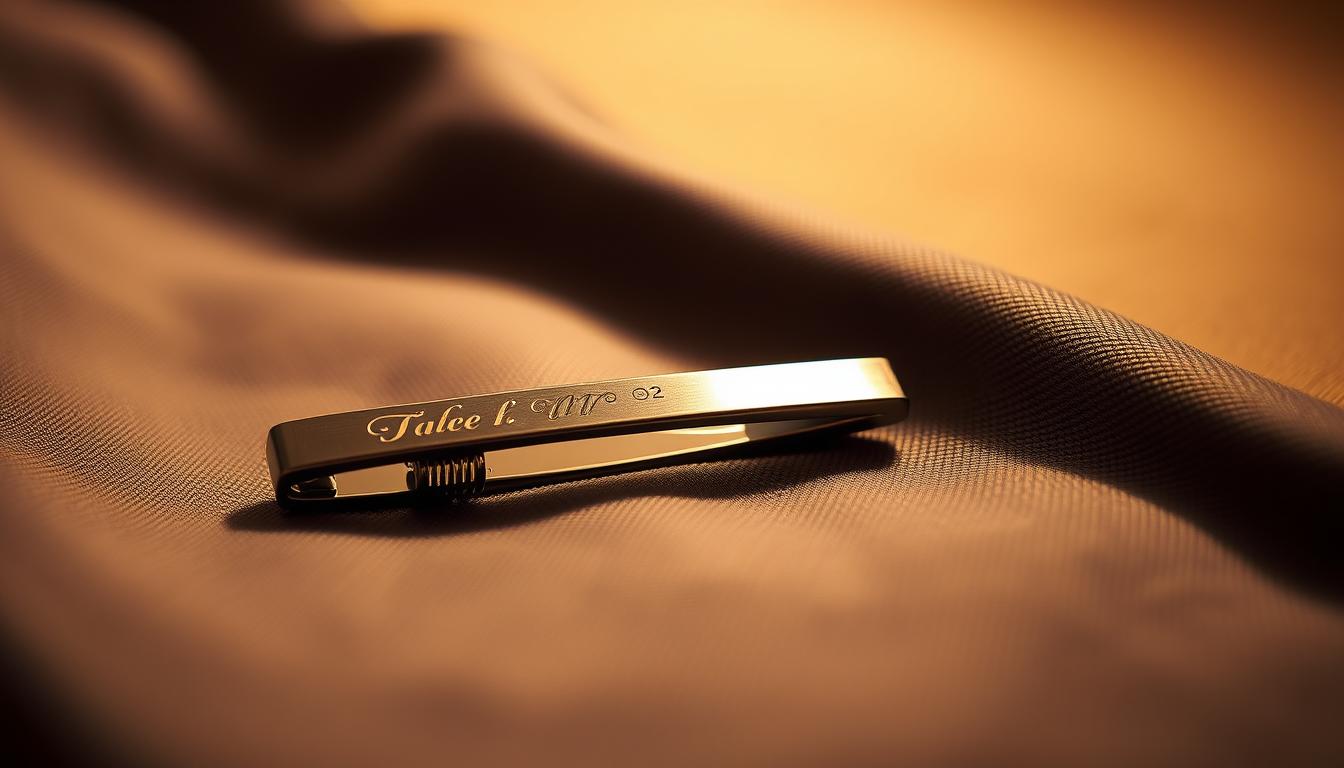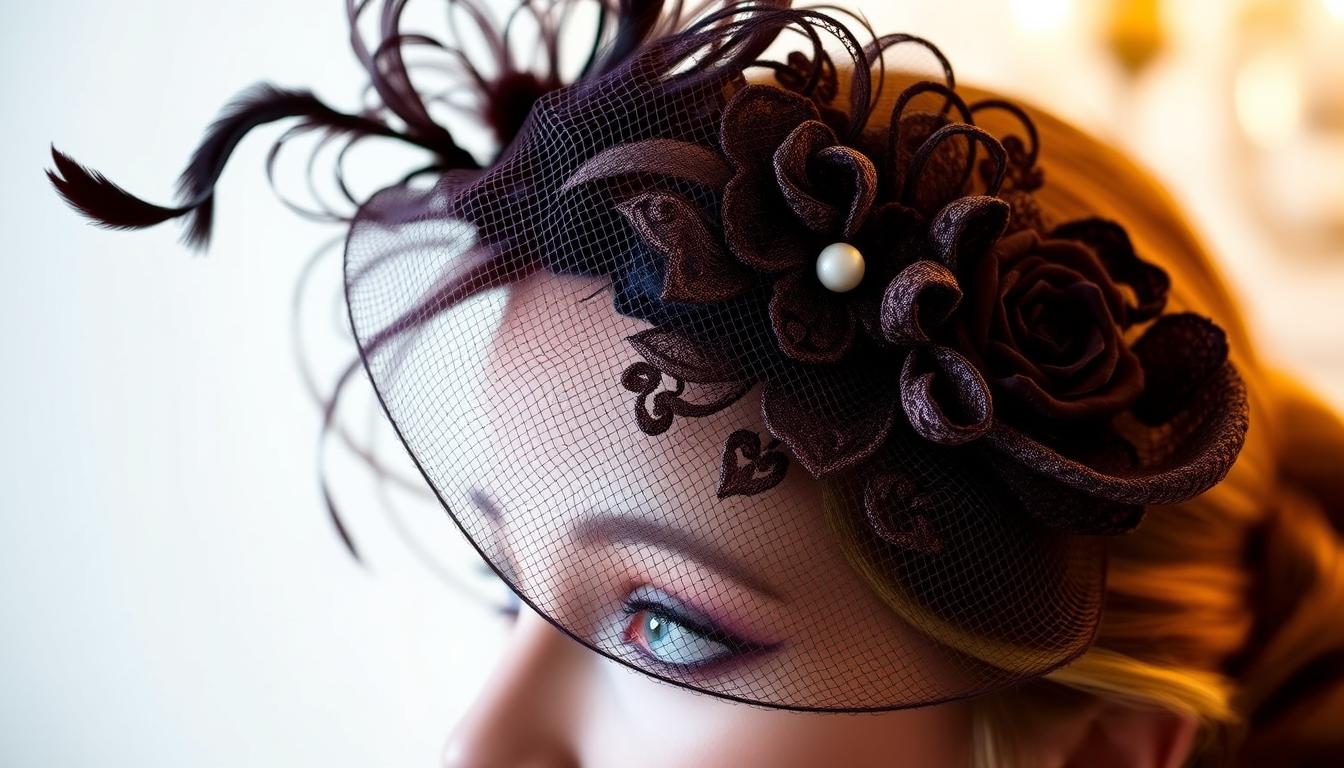Learning to wear a tie is key for any man wanting to improve his style. It’s vital for job interviews, business meetings, or special events. Knowing how to tie a tie can change how you look and feel.
Ties are more than fabric; they show your style and professionalism. They come in many styles, from classic to modern. This guide will teach you how to pick and wear a tie that makes a statement.
A good tie shows you’re sophisticated and detail-oriented. It’s important for any man, whether you’re experienced or just starting. Knowing how to wear a tie is a timeless skill.
Key Takeaways
- Understand the fundamental importance of proper tie selection
- Learn essential techniques for tying different knot styles
- Discover color coordination and pattern matching strategies
- Master professional tie-wearing etiquette
- Develop confidence in your personal style through expert tie techniques
Essential Tie-Wearing Basics for Beginners
Starting with men’s fashion accessories can seem daunting. But, learning to tie a tie is simpler than you might think. Our guide will cover the basics of neckwear, ensuring you look polished and confident anywhere.
Now, let’s explore the key elements that will change how you see ties. This knowledge will boost your style.
Understanding Tie Materials and Construction
Not all ties are the same. The material greatly affects how a tie looks and feels. Here’s a quick guide to common tie materials:
- Silk: The top choice for formal and professional ties
- Wool: Great for winter and adds texture
- Polyester: Affordable and easy to care for
| Material | Formality Level | Best Occasions |
|---|---|---|
| Silk | High | Weddings, Business Meetings |
| Wool | Medium | Winter Events, Casual Gatherings |
| Polyester | Low | Everyday Wear, Casual Settings |
Basic Terminology Every Man Should Know
Knowing tie terms helps you make better fashion choices. Key terms include:
- Blade: The wider end of the tie
- Keeper: Small loop holding the narrow end
- Dimple: Subtle crease at the knot’s center
When to Wear Different Types of Ties
Choosing the right tie depends on the event. A solid-colored silk tie is perfect for job interviews. A patterned wool tie adds flair to weekend outings. Your accessories should match the event and your style.
Choosing the Right Tie Length and Width
Mastering necktie styles means knowing about length and width. The right tie can make your formal wear stand out. Stylists say to pick a tie that fits your body and suit well.
When picking tie sizes, think about these things:
- Body height and build
- Suit jacket style
- Current fashion trends
- Personal comfort
Tie width usually is between 2.25 and 3.5 inches. Slim-fit suits look good with narrower ties. Classic suits do well with wider ones. Proportionality is the secret to a polished look.
| Body Type | Recommended Tie Width | Ideal Length |
|---|---|---|
| Slim Build | 2.25 – 2.75 inches | 57-59 inches |
| Athletic Build | 3 – 3.5 inches | 60-62 inches |
| Larger Build | 3.25 – 3.5 inches | 63-64 inches |
Style experts say the tie’s tip should hit your belt buckle. This makes your outfit look balanced and stylish.
How to Wear a Tie: The Fundamental Steps
Learning to wear a tie well takes practice and precision. Our guide will help you go from beginner to confident wearer quickly. The right way to tie a tie can make your whole outfit look better, making you look sharp and professional.
Before we get into the details, let’s cover the basics of tie wearing. Getting ready is essential for a perfect look.
Collar Preparation Essentials
Your collar is the base for a great tie look. Here are the key steps:
- Make sure your dress shirt collar is clean and sharp
- Button the top button of your shirt
- Spread the collar points evenly
- Check for symmetry and flatness
Strategic Tie Positioning
Getting your tie in the right spot is important. Follow these tips:
- Start with the tie around your neck
- Adjust the wide end to hang about 12 inches lower than the narrow end
- Position the seam facing inward
Basic Movement Techniques
Knowing the basic tie movements is key for a professional look:
| Movement | Key Technique |
|---|---|
| Cross-Over | Create smooth, controlled crosses without bunching |
| Knot Formation | Maintain consistent tension for a clean knot |
| Final Adjustment | Ensure tie sits centered and smooth |
Pro tip: Practice makes perfect. Don’t get discouraged if your first attempts aren’t flawless.
Popular Tie Knot Styles and Their Uses

Learning different necktie styles can make your outfit look better. Our guide will show you how to tie knots for any event.
Knowing about tie knots is more than just looking good. Each knot shows your style and care for details. Let’s look at the top knots that can change how you look at work and parties.
- Windsor Knot: The classic wide triangular knot ideal for spread collar shirts
- Four-in-Hand: A versatile, asymmetrical knot suitable for most collar types
- Half Windsor: A medium-sized knot perfect for standard business attire
- Pratt Knot: A symmetrical option great for medium-width ties
Choosing the right tie knot depends on several things. These include the shirt collar, tie material, and the event’s dress code. We’ll explain what to think about when picking your knot.
| Knot Style | Best For | Collar Type |
|---|---|---|
| Windsor | Formal events | Wide spread collar |
| Four-in-Hand | Casual settings | Most collar styles |
| Half Windsor | Business meetings | Standard point collar |
| Pratt | Professional environments | Medium spread collar |
Your tie knot guide isn’t complete without knowing how knots fit different face shapes and body types. Try out these styles to find your unique look!
Mastering the Classic Four-in-Hand Knot
The Four-in-Hand knot is a top choice for those who want to look sharp and confident. Our tie tying tutorial will help you master this classic knot. It’s easy to follow and will improve your styling skills.
Now, let’s learn how to tie the perfect Four-in-Hand knot. This style fits almost any collar and works well with different fabrics.
Precise Knot Tying Technique
- Begin with the wide end of the tie on your right side, about 12 inches below the narrow end
- Cross the wide end over the narrow end
- Move the wide end under the narrow end
- Pass the wide end through the loop around your neck
- Pull down softly to create a dimple in the knot’s center
Common Mistakes to Dodge
- Don’t pull the knot too tight, as it can ruin the fabric
- Make sure the tie’s length is right at your belt buckle
- The knot should be centered and even
Perfecting Your Approach
Getting better at tying a tie takes practice. Try it in front of a mirror and tweak your method until it looks just right. The trick is to keep your movements smooth but focused.
Color Coordination and Pattern Matching

Mastering men’s fashion accessories means paying attention to color and pattern. Your necktie is more than just an accessory. It’s a statement piece that can make or break your outfit. Understanding color theory and visual harmony is key to matching ties.
When looking at necktie fashion trends, keep these color coordination tips in mind:
- Match your tie’s dominant color with an accent color in your shirt or suit
- Use the color wheel to create complementary color combinations
- Avoid overwhelming patterns by balancing bold ties with solid shirts
Pattern matching requires careful attention. Subtle interactions between textures and designs can transform your look. For example, a striped suit looks great with a polka dot or solid-colored tie. This creates visual interest without being too much.
Professional men’s fashion accessories follow these key guidelines:
- Solid navy ties work with almost every shirt color
- Darker ties create a more formal appearance
- Lighter, brighter ties suit casual and creative environments
Current necktie fashion trends favor sophisticated yet playful color combinations. Think deep burgundy with light gray, or forest green with crisp white. These pairings show off personal style while keeping things professional.
Seasonal Tie Selection Guidelines
Learning about necktie styles means knowing how to pick the right tie for each season. Your tie collection should match your wardrobe’s versatility. It should show the unique spirit of each season.
Choosing the right tie is more than just picking a color. It’s about the texture, weight, and look that fits the season’s vibe.
Summer and Spring Choices
During warmer months, go for lightweight fabrics. Here are some great options for spring and summer:
- Linen ties in pastel colors
- Cotton ties with subtle patterns
- Lightweight silk ties in bright hues
Fall and Winter Options
When it gets colder, choose richer, heavier materials. Here are some good choices for fall and winter:
- Wool ties in deep burgundy and forest green
- Knitted silk ties with textured surfaces
- Cashmere ties for ultimate winter elegance
Special Occasion Considerations
Different events call for different tie styles. Pro tip: Always pick a tie that matches the event’s dress code.
- Weddings: Consider seasonal color palettes
- Corporate events: Stick to classic, understated designs
- Evening galas: Experiment with luxurious fabrics and bold patterns
Professional Settings and Tie Etiquette

Learning how to dress for work is key. Your tie is not just an accessory. It shows your professionalism and style.
Different jobs have their own dress codes. In creative fields, you can try bold ties. But in traditional offices, keep it simple.
- Conservative corporate environments: Stick to solid colors or subtle patterns
- Tech and creative sectors: Experiment with bolder designs and colors
- Financial and legal professions: Maintain classic, understated tie selections
For big work meetings, follow these tips:
- Choose ties that match your suit and shirt
- Make sure your tie is the right length – it should hit your belt buckle
- Stay away from ties that are too flashy or trendy
Pro tip: Your tie should show confidence without taking over. The right tie can make a big difference in business.
At networking events and meetings with clients, pick ties wisely. They should show you’re professional but also a bit of your personality.
Maintaining and Storing Your Ties Properly
Keeping your necktie styles in top shape is key. Your men’s fashion accessories need special care to stay looking great. We’ll show you how to keep your ties sharp and professional.
Cleaning Techniques for Delicate Fabrics
Different necktie styles need different cleaning methods. Silk ties are more delicate than wool or cotton. Here are some cleaning tips:
- Spot clean stains right away
- Use special cleaners for delicate fabrics
- Don’t machine wash or use harsh chemicals
- Blot stains, don’t rub them
Smart Storage Solutions
Storing your ties right is important. Keep them wrinkle-free and damage-free with these tips:
- Hang ties on special tie racks
- Roll ties loosely when traveling
- Keep them in cool, dry places
- Use padded hangers to avoid creases
Extending Your Tie’s Lifespan
With the right care, your necktie styles can last for years. Switch up your ties often to avoid overuse. Always untie carefully and store flat or hanging to keep them in shape.
Common Tie-Wearing Mistakes to Avoid

Learning to wear a tie can be challenging. It’s important to avoid common mistakes that can ruin your look. We’ve gathered the most common errors and how to fix them.
When you learn to wear a tie, you might make a few big mistakes. Here are the most common ones:
- Incorrect Tie Length: Your tie should reach the belt buckle, not hanging too high or too low
- Mismatched Knot Size with Collar Width
- Selecting Inappropriate Tie for the Occasion
- Neglecting Tie Maintenance
Knowing how to match your tie with your outfit is key. A well-worn tie shows you’re professional and pay attention to details.
| Mistake | Impact | Quick Fix |
|---|---|---|
| Oversized Knot | Unprofessional Appearance | Practice Precise Knot Techniques |
| Wrinkled Tie | Sloppy Look | Steam or Professional Pressing |
| Wrong Color Coordination | Fashion Misstep | Use Color Wheel Guidelines |
Getting good at wearing a tie takes time. Focus on the details, try different styles, and always remember confidence is key.
Accessorizing with Tie Clips and Pins
Adding the right accessories can make your formal outfit pop. Tie clips and pins are great for this. They add a touch of personal style and sophistication.
Tie accessories do more than just look good. They keep your tie in place and prevent it from moving around. This is important for professional settings.
Selecting the Perfect Tie Clip
When picking out tie clips, keep these tips in mind:
- Match the metal tone with your belt buckle or watch
- Select a width proportional to your tie
- Opt for classic metals like silver, gold, or brushed steel
Proper Placement Techniques
To look sharp, know where to place your accessories. Tie clips should go between the third and fourth shirt buttons. This creates a balanced look.
| Accessory Type | Recommended Placement | Style Impact |
|---|---|---|
| Tie Clip | Middle of tie, between 3rd-4th shirt buttons | Professional, structured |
| Tie Pin | Slightly off-center, near tie knot | Vintage, sophisticated |
Choosing Complementary Accessories
Our advice is to keep it simple with accessories. Less is more when it comes to tie clips and pins. Choose one piece that shows off your style without overdoing it.
The right accessory can take your outfit from good to great. It makes a subtle yet powerful fashion statement.
Advanced Tie-Wearing Tips for Special Events

To make your necktie stand out at special events, you need a plan and a keen eye for style. It’s not just about picking a tie. It’s about making a look that shows off your taste and leaves a lasting impression.
For big events, try these advanced tips:
- Choose a tie that matches the event’s formality
- Pick patterns that go well with your suit without being too much
- Try different knot styles to add interest
For events like destination weddings and black-tie galas, you need to be fancy. A silk tie with a bit of shine can make your whole outfit pop.
| Event Type | Recommended Tie Style | Knot Complexity |
|---|---|---|
| Corporate Gala | Solid silk or subtle paisley | Windsor or Half-Windsor |
| Beach Wedding | Linen or lightweight cotton | Simple Four-in-Hand |
| Winter Formal | Wool or velvet texture | Eldredge or Trinity knot |
Remember, your tie should match the whole outfit. You want a look that shows off the event’s vibe and your own style.
Troubleshooting Common Tie Problems
Learning to wear a tie is more than just tying knots. It’s about solving unexpected fashion challenges. Every man faces tie troubles, but with our expert guide, you’ll handle these issues like a pro.
Let’s tackle the most common tie problems and their quick fixes:
- Stubborn Wrinkles: Gently steam your tie or hang it in a steamy bathroom to relax fabric creases
- Uneven Knot: Carefully adjust both sides of the tie, ensuring symmetry and balance
- Slipping Knot: Use a tie clip or pin to secure your tie in place
Here’s a detailed guide for fixing tie problems:
| Problem | Quick Fix | Prevention Tip |
|---|---|---|
| Twisted Tie | Smooth out while wearing | Store ties flat or rolled |
| Stains | Blot immediately with clean cloth | Use stain-resistant fabric protector |
| Length Issues | Adjust knot placement | Select tie proportional to body height |
Pro tip: Always have a spare tie or emergency stain remover handy. Being prepared keeps you looking sharp.
Conclusion
We’ve looked into the world of men’s fashion accessories, making your necktie choices more than just basic. It’s about making a statement that shows your style and confidence. Knowing about necktie styles is more than just tying a knot around your collar.
Every tie you pick is a chance to show who you are. Whether it’s for a big business meeting or a fancy night out, the right tie can make your outfit better. Our guide has given you the skills to pick the right fabric, colors, and knots.
Your adventure in men’s fashion accessories keeps going. It’s about exploring style, expressing yourself, and looking sharp. Try out different textures, patterns, and knots. True style is about feeling good in what you wear, not just following rules.
Now, wear your ties with confidence. You know how to turn a simple accessory into a bold fashion statement. Your clothes are like a canvas, and ties are your way to express your personal style.





